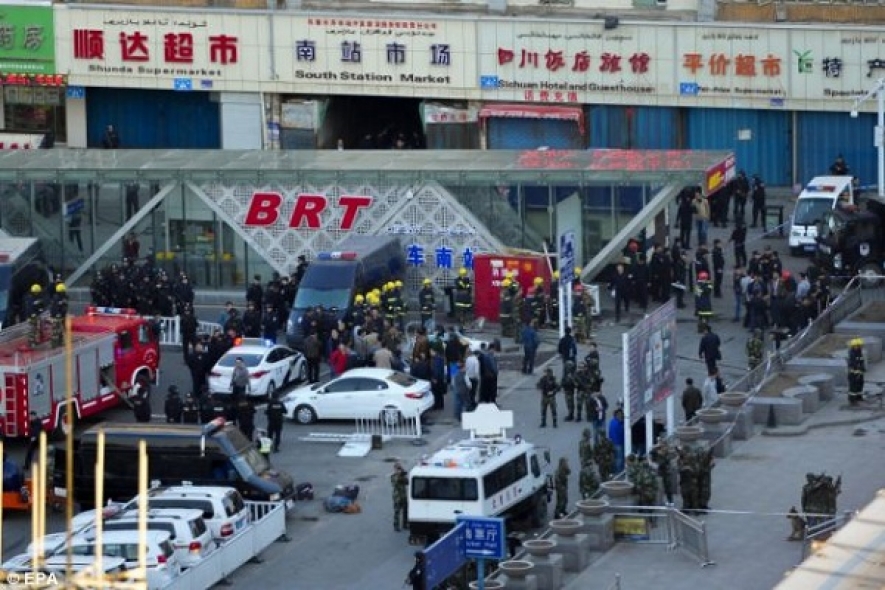The violence came as President Xi Jinping wrapped up a four-day visit to the area that has witnessed rising violence against civilians and authorities blamed on radical Islamists and separatists.
There was no immediate word on arrests and it was unclear whether Xi was still in the region at the time of the attack.The official Xinhua News Agency quoted eyewitnesses as saying at least two blasts went off at the South Station in the regional capital of Urumqi, while a large group of attackers went after passengers.
“At the moment, it is acknowledged to be a terrorist attack. What is yet to be found out is who did this and for what purpose under whose instigation,” Xinhua said in a report early Thursday.
Train service was suspended for about two hours, Xinhua said. It said security was tightened at all transport hubs in the city, which has a mainly Han Chinese population who are distinct from Xinjiang’s native Turkic Muslim Uighur ethnic group.
Photos circulating briefly on Chinese social media sites showed scattered luggage near the station’s exit and a heavy presence of armed men. Xinhua said the blast was centered on some luggage left on the ground between the station’s exit and a bus stop.
Tensions between Chinese and Uighurs have been simmering for years in Xinjiang, particularly since 2009 rioting in Urumqi left nearly 200 people dead. Beijing has at times blamed the violence on overseas-based instigators, but has offered little evidence.
While Beijing faults separatists for raising ethnic tensions, government critics say restrictive and discriminatory policies and practices have alienated the Uighurs. They say Han people have flooded Xinjiang and benefited from its economic growth while Uighurs have felt excluded.
China has smothered Xinjiang with additional security and imposed additional restrictions on Uighur travel rights, culture and religious practices. That, say Uighur activists, is exacerbating the resentments driving the violence.
During his visit to the region, Xi urged government officials to maintain social stability, promote growth, improve living standards and strengthen ethnic unity, according to state media reports.
Xi’s visit dominated state broadcaster CCTV’s evening news program Wednesday. It showed him shaking hands with police in helmets and bulletproof vests and inspecting shields and weapons used to quell riots.
“Local police stations are the fists and the daggers. We must work hard at the grass-roots level of the police stations,” Xi said. “We must take care of our front-line offices. You need to protect yourselves and make achievements at tasks such as better serving the people in the future and safeguarding social stability.”
Thum said Xi’s description of local police as fists and daggers also fit “many Uyghurs’ views of the police.”
Xi told officials that the long-term stability of Xinjiang is vital to the whole country’s reform, development and stability, Xinhua reported.
Xi said China would deploy a “strike-first strategy” in its fight against terrorism, Xinhua said.




















